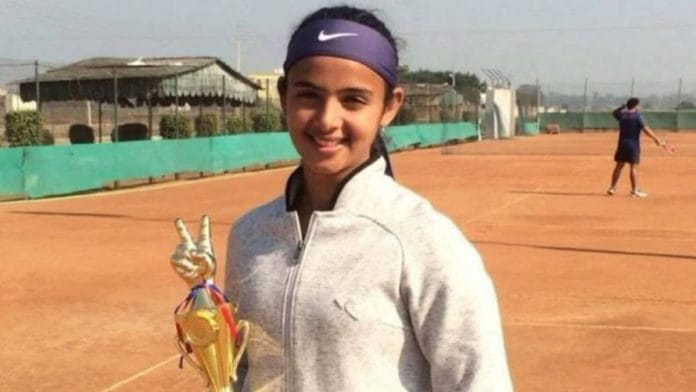Radhika Yadav, a 25-year-old tennis player, was shot dead by her father in Gurugram, a city where the sheen of urban life often rubs uncomfortably against the traditional values dominating much of its rural outskirts. What could have led a father to be so violent toward his daughter? The details remain unclear, and headlines are brimming with speculation, each theory attempting to make sense of an act that feels both unimaginable and all too real.
One such report suggests that after an injury ended Radhika’s tennis career, her father, Deepak, spent a significant amount on her treatment. But with no options left, she started coaching others instead. What might have appeared as a father supporting his daughter’s new path quickly morphed into something darker.
Deepak had been grappling with local taunts for some time—remarks about his daughter’s earnings, how the house was running on her money, and how he was too dependent on her success. The constant mocking chipped away at him. Despite asking Radhika multiple times to stop working at the academy, she refused. According to Station House Officer Inspector Vinod Kumar, “He was troubled by their remarks. He had asked her (Radhika) several times earlier to stop working at the academy, but she refused. He could not take it anymore.”
Deepak Yadav had a daughter who was successful and dreamed of making her own place in the world. She dared to disregard the expectations placed on women in her community. The tragedy isn’t just about one father’s actions; it’s a reflection of a society where the idea of a woman financially supporting her family is still seen as something laughable, even shameful. Would they feel the same if it were a son? Of course not. Let’s not pretend that such misogyny is rare.
The mindset that fuels this violence is prevalent across India—not just in rural pockets, but in urban spaces as well. What happened to Radhika is tragic, but it’s also a symptom of a larger, more systemic issue that goes beyond one family or one community.
Also read: Are Indian Muslims privileged or victims? Rijiju, Owaisi aren’t giving you the full picture
Painful reality of India
While the misogyny is clear, a deeper, more uncomfortable truth remains: many Indian parents don’t see children as individuals with rights, but as extensions of their own status and expectations. There are rigid expectations placed on them: from choosing a career to selecting a life partner, children are pressured to conform for their parents’ social validation. When children defy these expectations, the consequences can be severe. With daughters, these expectations are compounded by misogyny, turning what is already a stifling pressure into a dangerous – and sometimes lethal – combination.
It’s not just about choosing a career or partner – it’s about whether you’re allowed to exist as your own person at all. Such a belief in our society can transform a supportive family dynamic into a suffocating, controlling force. Especially for women, autonomy becomes an act of rebellion, which comes with severe consequences.
The other heartbreaking side of this tragedy is the reaction from some on social media, with posts that go as far as justifying the gruesome murder. Some say we don’t know the other side of the story, and others suggest that Radhika had a relationship with a Muslim man – as if that somehow excuses her killing. Such comments show an insidious mindset, one that not only sees a father’s violence as justified, but also frames her death in the context of communal tensions and imagined justifications.
Radhika’s killing is a testimony to how patriarchy still grips society. A woman’s value is measured by how well she conforms to the expectations placed upon her by the community. Such justifications of violence against an innocent woman, whether through a communal lens or misguided notions of “honour” only show the dark truth that many still see women as property to be controlled or discarded if they step out of line. This isn’t an isolated incident; it is part of a broader, painful reality that continues to play out across the country. Until women are seen as agents of their own destiny, as individuals who have value and agency, such violence will remain common, along with the usual choir of excuses that follow it.
Amana Begam Ansari is a columnist, writer, and TV news panellist. She runs a weekly YouTube show called ‘India This Week by Amana and Khalid’. She tweets @Amana_Ansari. Views are personal.
(Edited by Ratan Priya)






